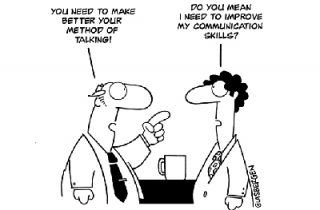Great leaders have great communications skills. They can bring a vision to life, rally the troops and communicate their authenticity.
Julian Treasure in his TED talk ‘How to speak so people want to listen’ explains the seven deadly sins of communications (watch for yourself in this video):
[embedvideo type=”youtube” id=”eIho2S0ZahI”]
The first is gossip. If trust is one of the key qualities of effective leadership, then being a gossip seriously undermines your leadership. People who trade gossip do so because sharing information that is confidential or salacious gives them an edge and gives them power. The trouble with people who gossip, however, is that we all know that if they gossip about others, they are certainly also gossiping about us.
Judging others has a similar negative effect on the communication skills of a leader because it reveals both a lack of compassion and a large ego. Negativity and complaining lessen the impact of your communication. It is exhausting and depressing to listen to someone who is constantly complaining and being negative. Great leaders consciously decide that they want to be ‘radiators’ rather than ‘drains’ and it soon becomes clear whom people would rather be around.
Deadly Sin number five is making excuses. Great leaders don’t make excuses; if they fail they put up their hands and admit that they gave it all their energy and commitment but they failed. Half-hearted accountability turns into excuses. Great leaders make a promise and against all odds try to keep it.
It is obvious that lying is a deadly sin but Julian Treasure also cautions against exaggeration, embroidery and hyperbole. If your communication is authentic then there shouldn’t be the need to ‘big it up’. As he says in his talk ‘if I genuinely am filled with awe… what do I say? Is it still “awesome”?’
The seventh deadly sin is dogmatism, which is the confusion of fact with opinion. This is the unquestioning, egotistical belief that what I’m telling you isn’t just my opinion but the universal truth.
At Leaders Lab we believe there is an eighth deadly sin when it comes to effective communication skills for leadership. It is simply not listening. Great communication starts first and foremost with a high level of listening. Effective communicators listen actively and hear the other person out, before putting their case. This level of listening means that the other person feels valued and their point is acknowledged. Great communicators build relationships through the quality of their listening.
[callout title=”Improve your communication skills” button=”Here’s how” link=”/management-skills-training/” buttoncolor=”white, yellow, orange, red, blue, green, gray, black, alternative-1, alternative-2, alternative-3″ target=”_blank or _self”]Find out about our Communication for Effective Leadership programme[/callout]
